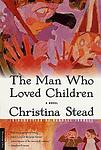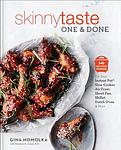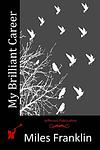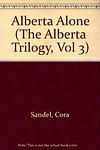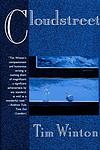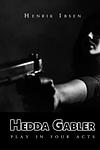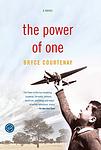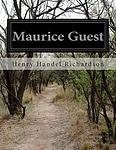The Greatest Norwegian, Australian Books of All Time
Click to learn how this list is calculated.
This list represents a comprehensive and trusted collection of the greatest books. Developed through a specialized algorithm, it brings together 300 'best of' book lists to form a definitive guide to the world's most acclaimed books. For those interested in how these books are chosen, additional details can be found on the rankings page.
Genres
Countries
Date Range
Reading Statistics
Click the button below to see how many of these books you've read!
Download
If you're interested in downloading this list as a CSV file for use in a spreadsheet application, you can easily do so by clicking the button below. Please note that to ensure a manageable file size and faster download, the CSV will include details for only the first 500 books.
Download-
1. Hunger by Knut Hamsun
This novel is a psychological journey through the mind of a starving young writer in 19th century Norway. Driven by pride and stubbornness, he refuses to accept help and instead chooses to endure severe hunger and the mental and physical deterioration it causes. His struggle is not only with his physical condition but also with his own mind as he battles hallucinations, mood swings, and an increasingly distorted perception of reality. The book is a profound exploration of poverty, mental illness, and the human will to survive.
-
2. A Doll's House by Henrik Ibsen
This classic play focuses on the life of Nora Helmer, a woman living in a seemingly perfect marriage with her husband, Torvald. However, as the story unfolds, it becomes clear that Nora has been hiding a significant secret related to their finances. The revelation of this secret, and the subsequent fallout, challenges societal norms and expectations of the time, particularly in regards to gender roles and the institution of marriage. Nora's eventual decision to leave her husband and children in pursuit of her own independence serves as a powerful commentary on individual freedom and self-discovery.
-
3. Kristin Lavransdatter by Sigrid Undset
Set in 14th century Norway, "Kristin Lavransdatter" follows the life of its titular character from her childhood, through her tumultuous and passionate marriage to Erlend Nikulausson, to her life as a mother and eventual widow. The narrative explores Kristin's struggles with faith, societal expectations, and personal desires, offering a vivid portrayal of medieval Scandinavian life along the way. Despite the many hardships she faces, Kristin remains a strong and resilient woman, embodying the spirit of her time.
-
4. The Man Who Loved Children by Christina Stead
This novel explores the complex dynamics of the Pollit family, focusing on the relationship between the egotistical patriarch Sam and his idealistic daughter Louie. Set in Washington D.C. during the 1930s, the story provides a stark portrayal of a dysfunctional family, where Sam's delusional optimism and insensitivity clash with Louie's growing disillusionment and rebellion. The narrative delves into themes of family conflict, emotional abuse, and the struggle for individual identity within the confines of family expectations.
-
5. The Thorn Birds by Colleen McCullough
"The Thorn Birds" is a sweeping family saga that spans three generations of the Cleary family, set against the backdrop of the Australian outback. It focuses on the forbidden love between the beautiful Meggie Cleary and the family's priest, Father Ralph de Bricassart. The novel explores themes of love, religion, and ambition, as Meggie and Ralph struggle with their feelings for each other and the choices they must make.
-
6. Voss by Patrick White
Set in 19th-century Australia, the novel follows a German explorer, Voss, as he leads a doomed expedition into the outback. Parallel to this, Voss develops a romantic relationship with Laura Trevelyan, a young woman he meets before his departure. Despite their physical separation, their spiritual and emotional connection deepens as Voss's journey becomes increasingly perilous. The narrative explores themes of obsession, the human condition, and the dichotomy between civilization and wilderness.
-
7. Schindler's List by Thomas Keneally
The book tells the true story of a German businessman who saves more than a thousand Polish Jews during the Holocaust by employing them in his factories. The protagonist's transformation from a greedy high living war profiteer to a savior of lives forms the crux of the narrative. It offers a chilling yet inspiring account of the horrors of the Holocaust, human resilience, and the power of one individual to make a significant difference.
-
8. Growth of the Soil by Knut Hamsun
"Growth of the Soil" is a novel that follows the life of a man who leaves his nomadic lifestyle to become a pioneer farmer in the Norwegian wilderness. The narrative traces his journey from solitude to building a family and a thriving farm, showcasing his deep connection with the land and the cyclical nature of life. The book also explores the tension between traditional rural life and modernity, as external forces such as industrialization and societal change begin to impact the protagonist's simple existence.
-
9. Oscar and Lucinda by Peter Carey
"Oscar and Lucinda" is a novel that tells the story of two unconventional individuals, Oscar and Lucinda, who meet on a ship going to Australia in the mid-19th century. Oscar, a young English clergyman, and Lucinda, a teenage Australian heiress, bond over their shared love of gambling. Their mutual obsession leads to a high-stakes wager that will have lasting consequences for both of them. The novel explores themes of love, faith, and obsession against the backdrop of Victorian-era England and Australia.
-
10. The Female Eunuch by Germaine Greer
This book is a seminal feminist text that explores the oppression of women in society. It critiques the traditional roles and expectations of women in the mid-20th century, arguing that societal norms and conventions force women into a secondary, submissive role, effectively castrating them. The book encourages women to reject these norms and to embrace their own sexual liberation, arguing for the need for a revolution in the way women perceive themselves and their place in society.
-
11. Sophie's World: A Novel About the History of Philosophy by Jostein Gaarder
"Sophie's World" is a unique and intriguing novel that intertwines the narrative of a young girl named Sophie with a comprehensive history of Western philosophy. Sophie begins receiving mysterious letters from an unknown philosopher and gradually becomes engrossed in the world of philosophy. The book uses Sophie's journey to explore philosophical concepts and theories, from ancient to modern times, in an accessible and engaging way, making it an excellent introduction to the subject for readers of all ages.
-
12. True History of the Kelly Gang by Peter Carey
This historical novel is a fictionalized account of the life of Australian outlaw Ned Kelly, told in the form of a journal written to his daughter. The narrative explores Kelly's life from childhood, his family's struggles with poverty and the law, his involvement in horse thievery, and his eventual formation of the Kelly Gang. The story culminates with the gang's infamous standoff with the police at Glenrowan, providing a humanizing perspective on a figure often portrayed as a ruthless criminal.
-
13. House with the Blind Glass Windows by Herbjørg Wassmo
"House with the Blind Glass Windows" is a poignant tale of a young girl growing up in Norway during the 1950s. The narrative explores her struggles with family secrets, abuse, and the oppressive nature of her small, rural community. The protagonist's journey towards understanding and overcoming her traumatic past forms the crux of the story, which is set against the backdrop of post-war Europe.
-
14. Pan by Knut Hamsun
The novel is a lyrical exploration of the beauty and savagery of nature, set in the wild landscapes of Northern Norway. It follows the story of a solitary hunter and former military man who lives in harmony with the wilderness. His peaceful existence is disrupted when he falls in love with a young woman, leading to a tumultuous relationship that reflects the untamed and unpredictable forces of the natural world around them. The narrative delves into themes of passion, isolation, and the human longing for connection, all while painting a vivid portrait of the changing seasons and the primal allure of the forest.
-
15. The Transit of Venus by Shirley Hazzard
The novel follows the lives of two orphaned Australian sisters, Caroline and Grace Bell, who move to England in the post-World War II era. The story revolves around their relationships, particularly Caroline's complex and often tragic love life. The narrative is filled with themes of love, fate, time, and the intricate complexities of human relationships, all set against the backdrop of significant historical events.
-
16. My Brilliant Career by Miles Franklin
The book follows the story of a headstrong and ambitious young woman named Sybylla, who dreams of escaping her rural life and becoming a writer. Set in late 19th century Australia, Sybylla faces societal expectations and struggles with her own desires for independence and self-expression. As she navigates through love, family, and societal pressures, Sybylla's journey becomes a reflection of the challenges faced by women in a patriarchal society, ultimately questioning the sacrifices one must make to pursue their dreams.
-
17. The Alberta Trilogy by Cora Sandel
"The Alberta Trilogy" is a series of three novels that follow the life of Alberta Selmer, a young woman growing up in a small Norwegian town in the early 20th century. The trilogy explores Alberta's struggle with societal expectations, her pursuit of independence and her journey to becoming a painter. Set against the backdrop of a harsh Norwegian landscape, the series highlights the protagonist's struggle with poverty, her relationships, and her exploration of her identity and place in the world.
-
18. Cloudstreet by Tim Winton
"Cloudstreet" is a sweeping family saga set in post-World War II Australia, following two families, the Pickles and the Lambs, who come to live together in a large, ramshackle house on Cloud Street over two decades. The story explores their struggles, triumphs, and the ways they are haunted and blessed by a mysterious spiritual presence. The novel is a celebration of endurance, unity, and the many forms of love, set against the backdrop of a changing Australia.
-
19. The Fortunes Of Richard Mahony by Henry Handel Richardson
"The Fortunes of Richard Mahony" is a trilogy that chronicles the life of an Irish-born man who emigrates to Australia during the gold rush of the 1850s. The narrative follows his journey, detailing his struggles with mental health, the challenges of marriage, and the difficulties of raising a family in a foreign land. The story provides a deep insight into the complexities of human nature, the societal norms of the time, and the challenges faced by immigrants.
-
20. Hedda Gabler by Henrik Ibsen
"Hedda Gabler" is a dramatic play that centers on the life of its titular character, a woman trapped in a loveless marriage with a dull, reliable husband. She is bored with her life and longs for freedom and excitement. Her desire for control and power leads her to manipulate those around her, resulting in tragic consequences. The play explores themes of societal expectations, personal freedom, and the destructive power of boredom.
-
21. The Tree of Man by Patrick White
This novel tells the story of Stan Parker, an ordinary and hardworking man living in the Australian outback. The narrative chronicles his life, including his marriage to Amy, the birth of their two children, and the various struggles they face such as financial hardship, natural disasters, and the challenges of rural life. The book provides a deep and introspective look into the human condition, exploring themes of love, death, faith, and the search for meaning.
-
22. The Power of One by Bryce Courtenay
This novel follows the life of a young English boy named Peekay who grows up in South Africa during the 1930s and 1940s. Despite facing bullying, racial segregation, and the hardships of World War II, Peekay remains resilient and determined to follow his dream of becoming a world-class boxer. Along his journey, he encounters various mentors who teach him about survival, love, and the power of one person to make a significant difference in the world.
-
23. Maurice Guest by Henry Handel Richardson
This novel is a compelling exploration of obsessive love set against the backdrop of a German conservatory in the early 20th century. It follows the story of an Englishman, who, aspiring to become a musician, moves to Leipzig to study. There, he becomes infatuated with an Australian woman, a fellow student, who is emotionally entangled with another man. The narrative delves deep into the complexities of human emotions, the destructive nature of unrequited love, and the protagonist's descent into obsession. Through its vivid portrayal of characters and setting, the book offers a poignant examination of the darker aspects of love and the human psyche.
-
24. The Getting Of Wisdom by Henry Handel Richardson
The novel is a coming-of-age story set in late 19th-century Australia, following the experiences of Laura Rambotham, a spirited and intelligent country girl sent to a prestigious Melbourne boarding school. Struggling with the rigid social hierarchies and the expectations placed upon her, Laura faces numerous challenges and humiliations, but she remains determined to find her place in the world. Through her journey, the book explores themes of education, social class, friendship, and the quest for personal identity, ultimately illustrating the complexities and trials of growing up and the bittersweet acquisition of wisdom.
-
25. Schindler's Ark by Thomas Keneally
The book is a historical novel based on the true story of a German industrialist who becomes an unlikely humanitarian amid the barbaric Nazi reign. When he witnesses the horrors inflicted upon the Jews, he is moved to save as many as he can by employing them in his factory. His actions, driven by courage and compassion, lead to the salvation of over a thousand Jewish workers from certain death in the Holocaust. The narrative explores themes of morality, survival, and the capacity for good in the face of overwhelming evil, as the protagonist navigates the complexities of war and the human spirit.
Reading Statistics
Click the button below to see how many of these books you've read!
Download
If you're interested in downloading this list as a CSV file for use in a spreadsheet application, you can easily do so by clicking the button below. Please note that to ensure a manageable file size and faster download, the CSV will include details for only the first 500 books.
Download


